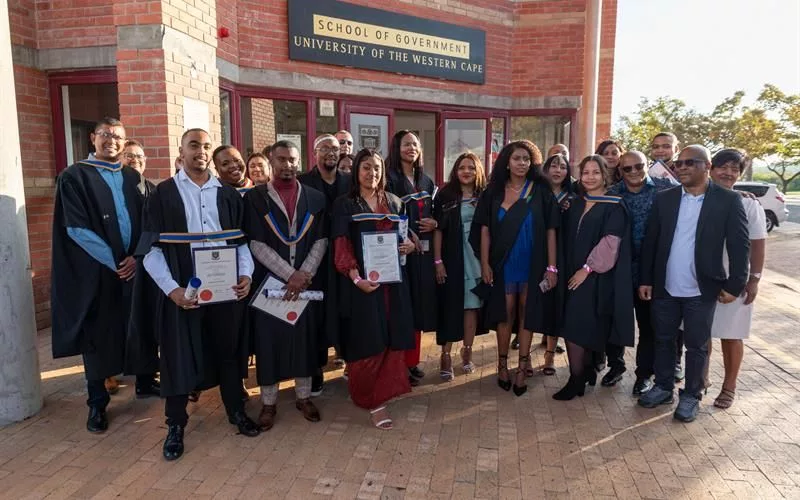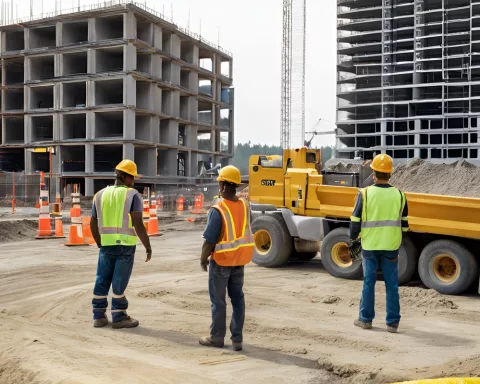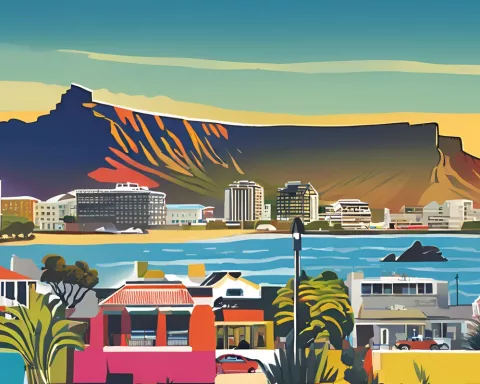The Expanded Public Works Programme (EPWP) in Cape Town is transforming public administration by providing practical work experience and high-quality education to its beneficiaries. The partnership between the City of Cape Town, the UWC School of Government, and the New Hope Training Organisation is creating a more inclusive and accessible public administration system, and the first group of EPWP beneficiaries recently graduated with an NQF-7 level qualification in Public Administration. The curriculum covers a wide range of subjects, and the graduates have been instilled with guiding principles such as democratic accountability, social equity, and ethical conduct. The accessible registration process and promising future outlook of the EPWP symbolize a monumental shift in efforts towards creating a more inclusive and accessible public administration system.
What is the Expanded Public Works Programme in Cape Town?
The Expanded Public Works Programme (EPWP) is an innovative partnership in Cape Town between the City of Cape Town, the UWC School of Government, and the New Hope Training Organisation, making significant strides in public administration and paving the path for inducting the young generation into public administration. Interested individuals can register for the EPWP at their local Subcouncil and get access to a more inclusive and accessible public administration system.
The Birth of a New Era in Public Administration
In the dynamic city of Cape Town, a new wave of change is being brought about through the Expanded Public Works Programme (EPWP). This innovative partnership, consisting of the City of Cape Town, the UWC School of Government, and the New Hope Training Organisation, is making significant strides in public administration. It is not only ushering in a novel era in the city’s administrative management but also paving the path for inducting the young generation into public administration.
A Milestone Achievement
A testament to the great promise of this project was revealed on 17 April 2024. This marked a significant day as the first group of EPWP beneficiaries graduated from the UWC School of Government. All thirty-three participants, who were selected following EPWP guidelines, attained an NQF-7 level qualification in Public Administration. This accomplishment stands equal to the acquisition of a bachelor’s degree.
This feat represents a significant leap for the programme, effectively encapsulating its dual aim of offering practical work experience combined with high-quality education. The proof lies in the impressive 99% passing rate achieved by this premier group of graduates. A special mention goes to Jason David Ross, whose 75% passing rate paved the way for his entry into post-graduate programmes.
Enriched Curriculum and Promising Graduates
The curriculum for this programme covers a wide range of subjects pertinent to the multifaceted administrative environment of the modern world. The graduates have gained insights into the historical, political, administrative, economic, and social aspects of governance in contemporary South Africa. They have also explored the intricate regional and international influences on governance.
Their intensive education has equipped them with a profound understanding of the legislative architecture for governance, including the structures and functions of government at all levels. They have experienced firsthand the dynamics of inter-governmental relations and the challenges and strengths of the policy-making process in South Africa and the Southern African region.
These graduates have been instilled with democratic accountability, social equity, ethical conduct, transparency, responsiveness, and representativeness. These guiding principles will steer their career path through the political and administrative transformation in South Africa.
Accessible Registration Process and Future Outlook
Registering for the EPWP is a streamlined process. Interested individuals need to visit their local Subcouncil and register their names with the Jobseekers Database. The required documentation includes a copy of the applicant’s CV, their ID or a valid South African work permit, and proof of residence. Keeping in line with the city’s policy, residents are not charged any fees for job opportunities or applications, making this opportunity accessible to all.
This initiative symbolises a monumental shift in the efforts towards the creation of a more inclusive and accessible public administration system. The project’s success underscores the potential of collaborative efforts in fuelling socio-economic development. As the City of Cape Town continues to harness the potential of the EPWP, we can look forward to more breakthroughs in empowering its beneficiaries and enhancing public administration.
As we praise the success of this inaugural group of graduates, we also eagerly anticipate the prospects this programme will open for future EPWP beneficiaries. As the initiative matures, it promises to nurture a stronger, more versatile public administration landscape, fortified by the competencies and knowledge of its graduates.
1. What is the Expanded Public Works Programme in Cape Town?
The Expanded Public Works Programme (EPWP) in Cape Town is an innovative partnership between the City of Cape Town, the UWC School of Government, and the New Hope Training Organisation, making significant strides in public administration by providing practical work experience and high-quality education to its beneficiaries.
2. What is the EPWP’s impact on public administration in Cape Town?
The EPWP is creating a more inclusive and accessible public administration system in Cape Town by providing practical work experience and high-quality education to its beneficiaries. The curriculum covers a wide range of subjects, and the graduates have been instilled with guiding principles such as democratic accountability, social equity, and ethical conduct.
3. What is the significance of the first group of EPWP beneficiaries graduating with an NQF-7 level qualification in Public Administration?
The first group of EPWP beneficiaries recently graduated with an NQF-7 level qualification in Public Administration, marking a significant milestone for the programme. The accomplishment encapsulates its dual aim of offering practical work experience combined with high-quality education. The impressive 99% passing rate achieved by this premier group of graduates is a testament to the great promise of this project.
4. What does the EPWP curriculum cover?
The curriculum for the EPWP covers a wide range of subjects pertinent to the multifaceted administrative environment of the modern world, including historical, political, administrative, economic, and social aspects of governance in contemporary South Africa. Graduates have also explored the intricate regional and international influences on governance.
5. How can interested individuals register for the EPWP in Cape Town?
Interested individuals can register for the EPWP at their local Subcouncil by providing a copy of their CV, their ID or a valid South African work permit, and proof of residence. The registration process is streamlined and free of charge in line with the city’s policy, making this opportunity accessible to all.
6. What is the future outlook for the EPWP in Cape Town?
The EPWP initiative symbolizes a monumental shift in the efforts towards the creation of a more inclusive and accessible public administration system. As the City of Cape Town continues to harness the potential of the EPWP, we can look forward to more breakthroughs in empowering its beneficiaries and enhancing public administration. The initiative promises to nurture a stronger, more versatile public administration landscape, fortified by the competencies and knowledge of its graduates.












